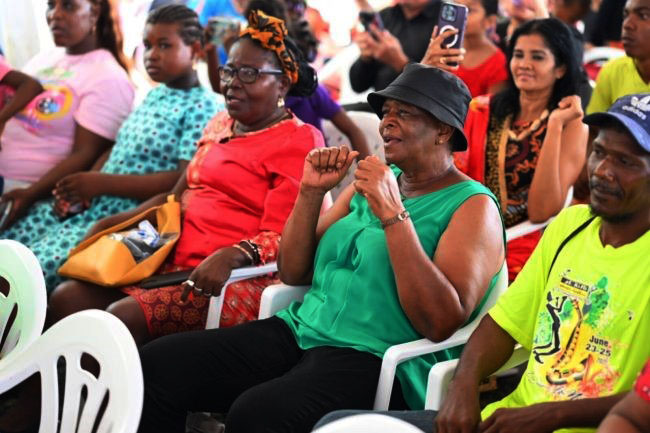President Irfaan Ali has announced that a national cultural market will be established in Palmyra, Region Six, to serve as an educational and talent-showcasing hub inclusive of a safe space for families.
The Department of Public Information (DPI) reported that Ali unveiled this initiative on Thursday when he joined Guyanese of African descent to celebrate the 186th Emancipation Anniversary.
Ali, DPI said, explained that plans are in place to promptly develop and complete the hub to showcase upcoming festivals. “As we build the new stadium, and as we build facilities around the stadium, and as we build hotels, an important part of why people will come to Region Six is to be part of this national cultural market.” The market, according to the DPI, is envisioned to encapsulate all facets of the country’s culture, including food, clothing, dance, music, and art. Additionally, the historical context of emancipation and the abolition of slavery is a pivotal part of the initiative. “This will be a symbol of the importance of culture in bridging gaps and bringing people together. The importance of culture in economic and social revolution. The importance of culture in developing healthy lifestyle… [and] the importance of culture in celebrating the unity of our people and our country,” Ali underscored.
DPI said that Senior Minister in the Office of the President with responsibility for Finance and Public Service, Dr Ashni Singh, along with technical personnel were tasked with conducting consultations with culture groups to advance the plan and within six weeks, community consultations will begin to formalize plans and establish a committee.
Ali, the DPI release further stated, said that CARICOM will continue to persist in its pursuit for reparations. “CARICOM’s commitment to seeking reparations is not just about financial compensation, it is about acknowledgement, accountability, and healing. The injustices of the past cannot be erased, but they can be addressed with sincerity and fairness. Reparations represent a step towards rectifying the wrongs and building a more just and equitable future.”










